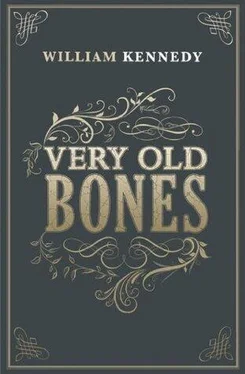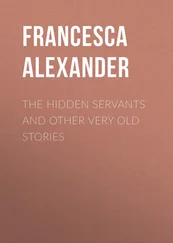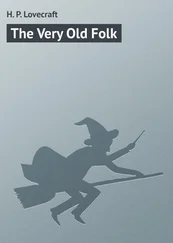The first thing I did was register and establish my credit with the Plaza’s front desk, then equip myself with ready cash. I engaged a corner suite that looked out on Fifth Avenue, Central Park, and the Grand Army Plaza, and then I descended to Fifth Avenue and on to Saks, where I bought three new shirts and ties, pocket handkerchiefs, shoes, belt, socks, and the gray glen plaid suit I’d seen in the window; but I would accept it all, I told the clerk, only if alterations were done within the hour (cost not an obstacle) and delivered to my suite at the Plaza, which they were.
I bought two pounds of Barricini chocolates for Giselle, and back at the suite ordered two dozen yellow roses from the hotel florist and four bottles of her favorite French wines from room service. I went back downstairs and explored the lobby, found the Palm Court too crowded, sought out an empty corner of the Oak Bar, and ordered my first drink in five and a half months, a Scotch on the rocks with water on the side. I sipped it with care, waiting for my system to feel the first alcoholic rush of the new year, and wondering if Dr. Tannen’s prophecy would be correct: that, should I ever again drink alcohol, the flood controls of my brain would let the madness cascade back into my life.
I affirmed my disbelief in this diagnosis with another sip of whiskey, and only then did I look about me at this walnut-dark, wood-paneled male saloon, with its murals out of the storied past of the Plaza — a horse and carriage in a snowstorm in front of the old hotel, water spilling out of the fountain’s dish while a full moon is all but covered by clouds. By the light from the room’s wall sconces and copper windows this country’s Presidents, giants of capital, movie stars, and great writers had drunk for half a century. I recognized no one. I took another sip and knew the ease that drink had always provided me, a flow of juices that wakened dormant spirits and improbable values. The first sips alone did this. Consider, then, the potential of an entire bottle.
For months I had not seen anybody through the auroral brilliance that those summoned juices could generate. My life had been repetitive ritual: rise from narrow bed, dress in sordid clothing, eat meagerly and without relish, go out into the world to edit a book you loathe, confront what you now knew to be an unpublishable novel of your own making, come home in darkness to reinhabit your father’s bohemian gloom, and write your daily letter to Giselle.
I knew the danger of imposing too much trivia on my letters and so, one by one, I outlined the lives of my putative relatives to her, also wrote her short essays on the values assorted poets and writers imparted to the world, even if they never published a word. The task, of itself, I wrote her, was holy, the only task atheists could pursue that was buoyed by the divine afflatus. As for myself, the afflatus was flatulent.
I realized with each new sip of Scotch that Dr. Tannen was wrong. I had, since Germany, accepted the doctor’s rules and entertained no temptation to suck on a whiskey bottle. But here again came that most wondrous potion into my life, already sending enriched phlogiston into my internal organs, upthrusting my spirit to an equivalency with Presidents, giants of capital, movie stars, and great writers, and providing me with all this not through fraudulence, bravado, delusion, or hallucination. None of that was on the table. This was real. I saw the future unrolling itself before me, knew phlogiston, fraudulence, badness, chocolates, yellow roses, and new neckties when I saw them, Mr. Plaza.
I ordered another Scotch.
A man of about forty years sat at the next table and placed his folded New York Times on an adjacent chair. I could read one headline: U.S.-South Korea Units Lash Foe; Jet Bombers Cut Routes Far North. The owner of the newspaper ordered a martini and I asked him, “Could I borrow your Times for a quick look?”
The man shrugged and nodded and I looked through the paper: Senate will confirm Chip Bohlen as ambassador to Moscow despite McCarthy attack. Alfred Hitchcock melodrama, I Confess , is panned by reviewer. Twenty-three killed, thirty wounded in Korea, says Defense Department. Salome , with Rita Hayworth, Stewart Granger, and Charles Laughton, opens at the Rivoli Wednesday.
It all served to incite informational depression in me, especially the opening of Salome. We all know what Salome does to John the Baptist, don’t we, moviegoers? I folded the newspaper and returned it to my neighbor.
“The news is awful,” I said.
“You mean out of Korea?” said the man, who had a look about him that Orson seemed to recognize.
“Everywhere. Even Alfred Hitchcock isn’t safe.”
“Who’s Alfred Hitchcock?”
“He’s a Senator. A Roman Senator. He looks like Charles Laughton.”
“Oh.”
“He’s married to Rita Hayworth. You know her?”
“The name has a ring.”
“I agree,” I said. “Reeeeee-ta. A ring if there ever was one.”
“I beat Korea,” the man said.
I now realized that this man looked very like Archie Bell, the warrant officer I had served with at Frankfurt. It wasn’t Archie, of course, but there was something about the mouth; and the eyes were similar. But the face, the hair — nothing like Archie.
“They sent me to Korea,” Archie said, “and they thought they were givin’ me tough duty. You know what I did? I beat the shit out of my knee with an entrenchin’ tool and got a medical discharge. They thought I caught shrapnel. Got the pension, all the musterin’-out stuff, and right away I invested it in Jeeps. Willys, you know the company?”
“The name has a ring,” I said. “Will-yyyyyys.”
“Today Kaiser-Frazer bought Willys for sixty-two mill. You know what that means?”
“Not a clue.”
“That’s major-league auto-making. My broker says I could double my money.”
“Smart,” I said. “Very smart. I had a pretty good afternoon too. I started out with a hundred, and it’s ten times that now, maybe more.”
“Hey, buddy, this is a good day for the race.”
“The human race?”
“Nooooooo. The race race. We’re beatin’ the niggers.”
“I noticed. They don’t have any in here. But then again Lincoln used to drink here,” I said.
“Izzat right?”
“Every President since Thomas Jefferson drank here.”
“Izzat right? I didn’t think the place was that old.”
“Who’s your broker?”
“Heh, heh. You think I’m gonna tell you?”
“You know who my broker is?”
“Enhhh.”
“Thomas Jefferson.”
“A two-dollar bill.”
“My card, friend,” I said, handing him the business card of the Life editor. “Call me anytime. Let’s have lunch and plan some investments.”
“Watch out for falling rocks,” the man said.
“Here?”
“Everywhere,” he said, and he smiled a smile that I recognized from the poker games in Frankfurt. This was the Captain, invested with Archie Bell’s smile. I left the Oak Bar without looking back, knowing my past was not far behind. I took the elevator to the suite, put on my new clothes, opened a bottle of Le Montrachet to let it breathe, then descended to the Palm Court to meet the most beautiful, most sensual, most photographic, most photogenic wife in the history of the world.
“You look merveilleux ,” Giselle said, stroking the waves of my hair, feeling the silk of my pocket handkerchief between her thumb and forefinger. I had been sitting alone in the Palm Court, sipping whiskey, listening to the violin and piano playing Gershwin’s “Summertime,” when the livin’ is easy, a perfect theme for this day. The song wafted over the potted palms, over the heads of the thinning, mid-afternoon crowd.
Читать дальше












